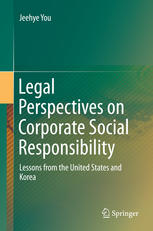

Most ebook files are in PDF format, so you can easily read them using various software such as Foxit Reader or directly on the Google Chrome browser.
Some ebook files are released by publishers in other formats such as .awz, .mobi, .epub, .fb2, etc. You may need to install specific software to read these formats on mobile/PC, such as Calibre.
Please read the tutorial at this link: https://ebookbell.com/faq
We offer FREE conversion to the popular formats you request; however, this may take some time. Therefore, right after payment, please email us, and we will try to provide the service as quickly as possible.
For some exceptional file formats or broken links (if any), please refrain from opening any disputes. Instead, email us first, and we will try to assist within a maximum of 6 hours.
EbookBell Team

5.0
30 reviewsThis book offers readers a comprehensive and in-depth legal analysis of corporate social responsibility (CSR) by examining the theoretical foundations of corporate governance and its legal mechanism in the United States and South Korea. Moreover, it proposes legislative blueprint for establishing the legal frameworks that might serve to legitimize and effectively implement CSR in general. Reflecting the zeitgeist of improved corporate accountability and transparency, the ongoing movement to enhance CSR has permeated entire sectors of society the world over. Despite the apparent ubiquity of CSR, the corporate laws of many countries remain relatively silent on the issue, omitting to include any explicit provision governing the concept. Partly in response to this lack of legislation, Korean corporate scholars, for example, have attempted to introduce American legal theories, systems and laws on CSR into Korea. Yet traditional Korean jurisprudence provides no defining foundation for CSR; indeed, the prevailing view in jurisprudence and scholarship passively resists instituting corporate responsibility into the law. In response to this jurisprudential and academic shortcoming, and as an example for other countries, this book provides a comprehensive guide to the relevant legislation and theory on CSR in Korean corporate law by employing a comparative study of the relevant American theories and laws. Proceeding from this analysis, the book then puts forward a legislative blueprint for establishing a foundation to legitimize and effectively implement CSR.